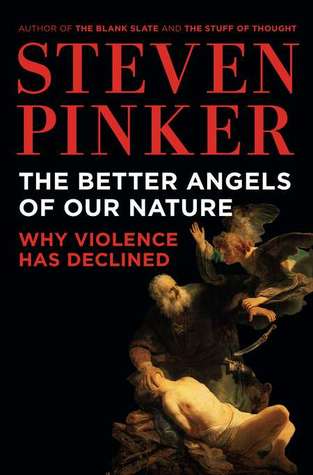Human Biology and Monarchy
Luard calls the first of his ages, which ran from 1400 to 1559, the Age of Dynasties. In this epoch, royal “houses,” or extended coalitions based on kinship, vied for control of European turfs. A little biology shows why the idea of basing leadership on inheritance is a recipe for endless wars of succession.
Rulers always face the dilemma of how to reconcile their thirst for everlasting power with an awareness of their own mortality. A natural solution is to designate an offspring, usually a firstborn son, as a successor. Not only do people think of their genetic progeny as an extension of themselves, but filial affection ought to inhibit any inclination of the successor to hurry things along with a little regicide. This would solve the succession problem in a species in which an organism could bud off an adult clone of himself shortly before he died. But many aspects of the biology of Homo sapiens confound the scheme.
First, humans are altricial, with immature newborns and a long childhood. That means that a father can die while a son is too young to rule. Second, character traits are polygenic, and hence obey the statistical law called regression to the mean: however exceptional in courage or wisdom a parent may be, on average his or her children will be less so. (As the critic Rebecca West wrote, 645 years of the Habsburg dynasty produced “no genius, only two rulers of ability . . . , countless dullards, and not a few imbeciles and lunatics.”)95 Third, humans reproduce sexually, which means that every person is the genetic legacy of two lineages, not one, each of which can lay a claim to the person’s loyalties when he is alive and to his perquisites when he dies. Fourth, humans are sexually dimorphic, and though the female of the species may, on average, get less emotional gratification from conquest and tyranny than the male, many are capable of cultivating the taste when the opportunity presents itself. Fifth, humans are mildly polygynous, so males are apt to sire bastards, who become rivals to their legitimate heirs. Sixth, humans are multiparous, having several offspring over their reproductive careers. This sets the stage for parent-offspring conflict, in which a son may want to take over a lineage’s reproductive franchise before a father is through with it; and sibling rivalry, in which a laterborn may covet the parental investment lavished on a firstborn. Seventh, humans are nepotistic, investing in their siblings’ children as well as in their own. Each of these biological realities, and often several at a time, left room for disagreement about who was the appropriate successor of a dead monarch, and the Europeans hashed out these disagreements in countless dynastic wars.
Notes:
Folksonomies: culture evolutionary psychology monarchy
Taxonomies:
/family and parenting/children (0.532792)
/health and fitness/disorders/mental disorder/panic and anxiety (0.371553)
/family and parenting/babies and toddlers (0.365563)
Keywords:
little biology shows (0.973258 (negative:-0.721707)), countless dynastic wars (0.959680 (negative:-0.437825)), critic Rebecca West (0.935265 (neutral:0.000000)), firstborn son (0.851556 (neutral:0.000000)), European turfs (0.839896 (neutral:0.000000)), filial affection (0.830822 (negative:-0.306442)), Monarchy Luard (0.827735 (neutral:0.000000)), humans (0.825933 (negative:-0.448362)), Human Biology (0.820302 (neutral:0.000000)), countless dullards (0.811050 (neutral:0.000000)), immature newborns (0.809666 (negative:-0.546901)), succession problem (0.809516 (negative:-0.403657)), everlasting power (0.809233 (neutral:0.000000)), appropriate successor (0.805705 (negative:-0.294046)), endless wars (0.803745 (negative:-0.721707)), Habsburg dynasty (0.803623 (neutral:0.000000)), natural solution (0.801089 (positive:0.642229)), genetic progeny (0.797332 (neutral:0.000000)), adult clone (0.795094 (negative:-0.403657)), little regicide (0.795029 (negative:-0.306442)), emotional gratification (0.792639 (negative:-0.291068)), legitimate heirs (0.789453 (neutral:0.000000)), statistical law (0.788801 (neutral:0.000000)), long childhood (0.787837 (negative:-0.546901)), sibling rivalry (0.787265 (neutral:0.000000)), character traits (0.787175 (neutral:0.000000)), biological realities (0.783670 (neutral:0.000000)), dead monarch (0.780993 (negative:-0.294046)), reproductive careers (0.777966 (neutral:0.000000)), parental investment (0.777164 (neutral:0.000000))
Entities:
Human Biology:FieldTerminology (0.847226 (neutral:0.000000)), Monarchy Luard:Person (0.614536 (neutral:0.000000)), Rebecca West:Person (0.561344 (neutral:0.000000)), Homo sapiens:FieldTerminology (0.527996 (neutral:0.000000)), 645 years:Quantity (0.527996 (neutral:0.000000))
Concepts:
Human (0.963561): dbpedia | freebase | opencyc
Dynasty (0.892991): dbpedia | freebase | opencyc
Reproduction (0.782545): dbpedia | freebase
Male (0.765811): dbpedia | freebase | opencyc
House of Habsburg (0.690162): dbpedia | freebase | opencyc | yago
Family (0.683309): dbpedia | freebase
Parent (0.664001): dbpedia | freebase | opencyc
Biology (0.582701): dbpedia | freebase | opencyc





